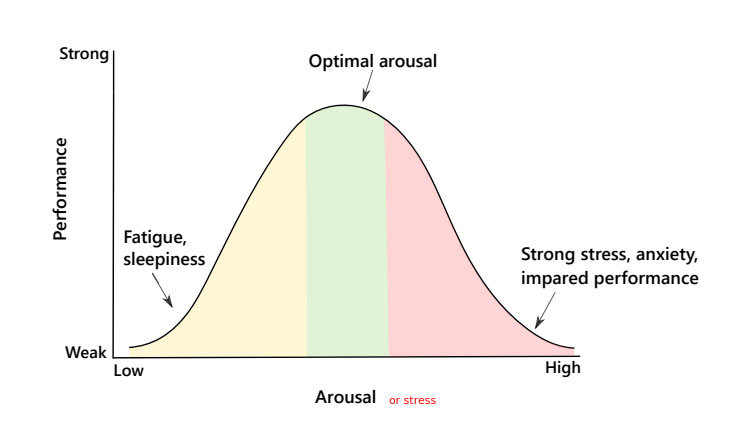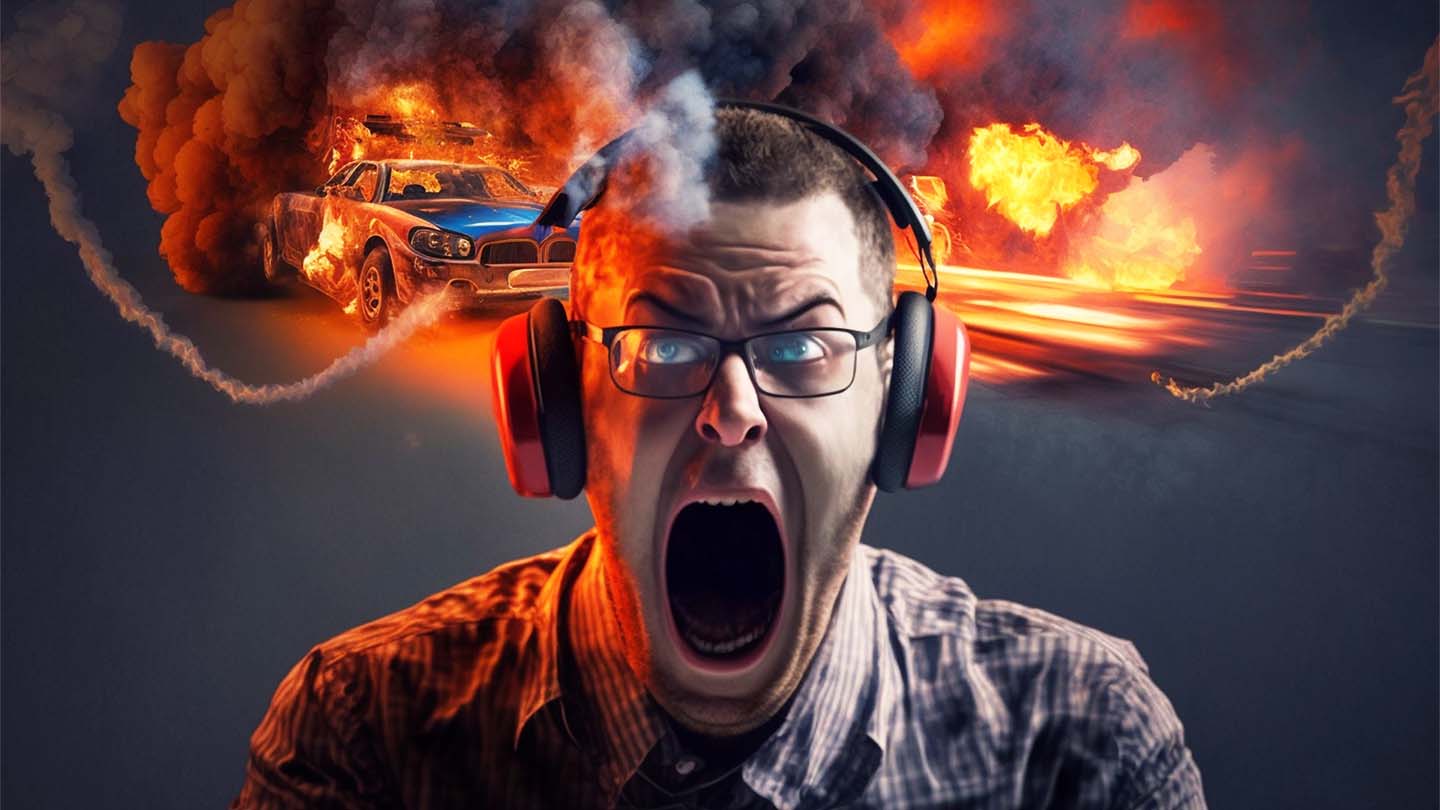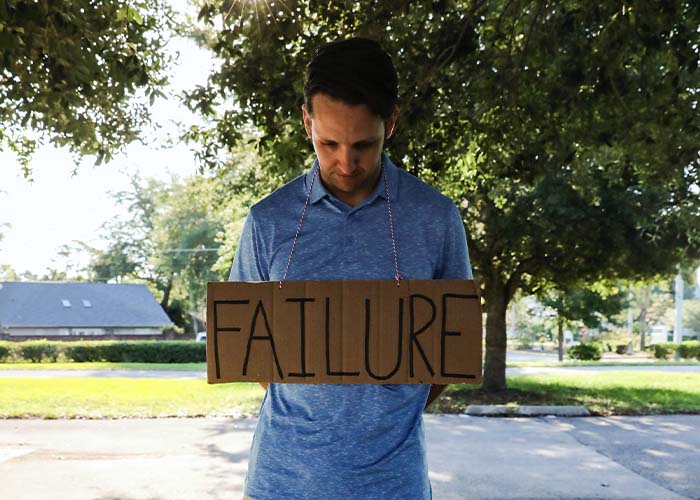Do you have anxiety while gaming?
If you feel nervous and worry about your performance while playing, you might have performance anxiety. Performance anxiety can be defined as:
“A tendency to see competitive situations as threatening and react to these situations with feelings of fear and tension.”
The negative feelings that come along with performance anxiety vary depending on factors like experience, competitiveness, social support, expectations, coping skills, etc.
This article helps you understand what happens inside your body and mind when you have performance anxiety and you will get effective tools for how to overcome the anxiety.
If you don’t feel any anxiety great for you. However, you can still benefit from reading this information.
How does it feel to have performance anxiety?
You might be concerned about losing the game or performing poorly in front of your teammates. It’s common to have negative thoughts when pressure is high and you know your teammates are watching you. The negative thoughts create a reaction in your body that gets you to feel various symptoms. Along with performance anxiety comes physical and mental symptoms:
Physical: trembling hands, breathing rapidly, increased heart rate, sweat, vision changes
Mental: negative thoughts, worry, fear, difficulty concentrating, anticipating the worst outcome
Anxiety before, during, and after competitive matches
When you start to think and worry about your performance, you limit your chances of success. Anxiety can come at any moment and ruin every enjoyable moment.
When the anxiety arises before a match it’s influenced by the amount of time before the start and is not directly impact your performance. If your anxiety is not controlled before the match starts it will keep you away from playing your best.
When you are in the game and anxiety starts to rise it is often influenced by the importance of the match, the current in-game situation, how well you know your teammates, and how you have performed so far.
If anxiety is present after the match has ended it will be influenced by whether you win or lose, how you perceive your performance and how much enjoyment you felt during the match.
Not all anxiety is bad
You are probably familiar with the increased heart rate after an intense clutch situation. This might feel uncomfortable and even frightening for someone. But it is not all bad.
The increased heart rate is a sign of adrenaline being pushed out into your body. The adrenaline makes you more alert which makes you think and react faster.

Optimal arousal
Arousal is the physical and mental state of being awake. It has a direct influence on your performance.
Looking at the model below you can see that your performance peak when you have optimal arousal. Optimal arousal is when you are awake to the point where you’re not feeling tired or too alert and stressed. If you manage to control higher levels of alertness and stress you likely increase the potential for higher performance.
How to overcome performance anxiety
You can make use of different strategies to cope with your performance anxiety. The scientific literature suggests that behavioral strategies remain the most effective treatment for long-term effects. All techniques mentioned below can be seen as behavioral strategies.
Cognitive-behavioral tools (CBT)
CBT is about having a range of mental strategies to overcome negative thoughts that are keeping you away from performing your best.
Positive self talk
Using your inner voice to repeat positive and supporting statements can help reduce anxiety. Repeating positive statements can change your perspective to the point where you no longer see the same situations as fearful.
A few examples of a positive statement could be:
- This is an opportunity to learn something new
- Fear is only a feeling, it cannot hold me back
- I forgive myself for the mistakes I make
- I am doing the best I can, and that is good enough
Identify irrational beliefs
We all got different responses to situations based on our beliefs about the situation. When things get stressed irrational thoughts might get triggered more often.
Start by analyzing the event and see if you find any irrational beliefs. Anyone you find replaces it with a positive self-talk statement.
Some examples of irrational beliefs could be:
- The teammates think I am a bad player
- I am worthless in this game
- I must perform well in every game or else I am no good
- I should have done differently
Relaxation techniques
Relaxation techniques aim to decrease arousal and avoid poor performance due to high stress. A few techniques will be mentioned but there is plenty more to find online.
Slow breathing
Slow breathing is one effective way to calm down your body and mind. A great place to start is by counting to for on the inhale and counting to 6 on the exhale. By doing this you lower your breath frequency to 6 breaths per minute which is scientifically known to activate specific parts of your nervous system responsible for calming the body and mind.
Doing 10 minutes of slow breathing you should feel a significant difference.
Progressive muscle relaxation
Another great way to relax your body is by progressive muscle relaxation. Such a technique involes tensing specific muscle groups and then relaxing them. Start with the lower part of the body and work your way up to the head. Do 3 reps for each muscle group and you will feel a big physical difference. Progressive muscle relaxation should be done before or after a game.
Stress management
Stress is great in the right amount at the right time. Too much stress over a long time is bad for many reasons. That’s why it is important to manage your stress levels throughout the day to secure that the stress is not ruining your performance.
If you feel stressed all the time see if you can find a solution to the cause of the stress and make sure you implement one of the two relaxation techniques mentioned above.
Otherwise, you can practice certain breathing techniques that aim to increase stress and energy in your body to learn to cope with higher stress. An easy and accessible technique to achieve this is by doing Wim Hof breathing. Wim hof breathing is in short 3 rounds or more of 30 heavy breaths followed by a breath-hold in between the rounds.
– Embrace the stress by seeing stress as a facilitator for better performance. Not that your whole body needs to vibrate with energy to stay at your peak.
References
Patel, D. R., Omar, H., & Terry, M. (2010). Sport-related performance anxiety in young female athletes. Journal of pediatric and adolescent gynecology, 23(6), 325-335.
Saeed, A., Trajanovski, S., Van Keulen, M., & Van Erp, J. (2017, November). Deep physiological arousal detection in a driving simulator using wearable sensors
You might also like

How to Avoid Burning Out

Exercise makes your brain love gaming

Why failure is the secret ingredient to growth and success

